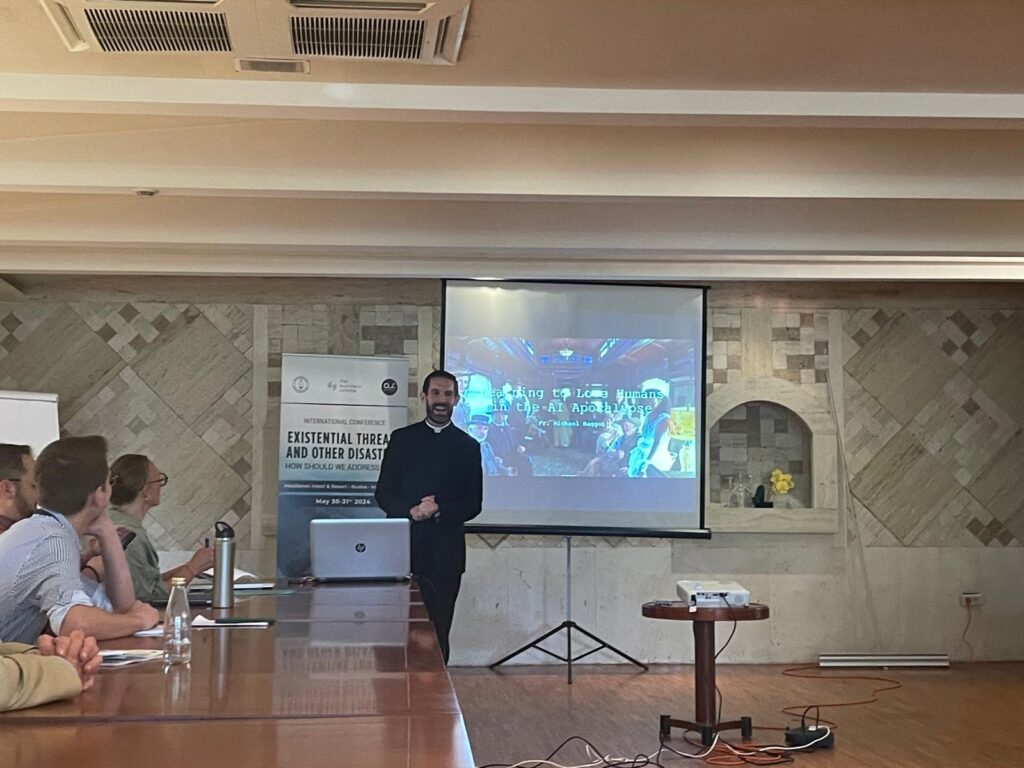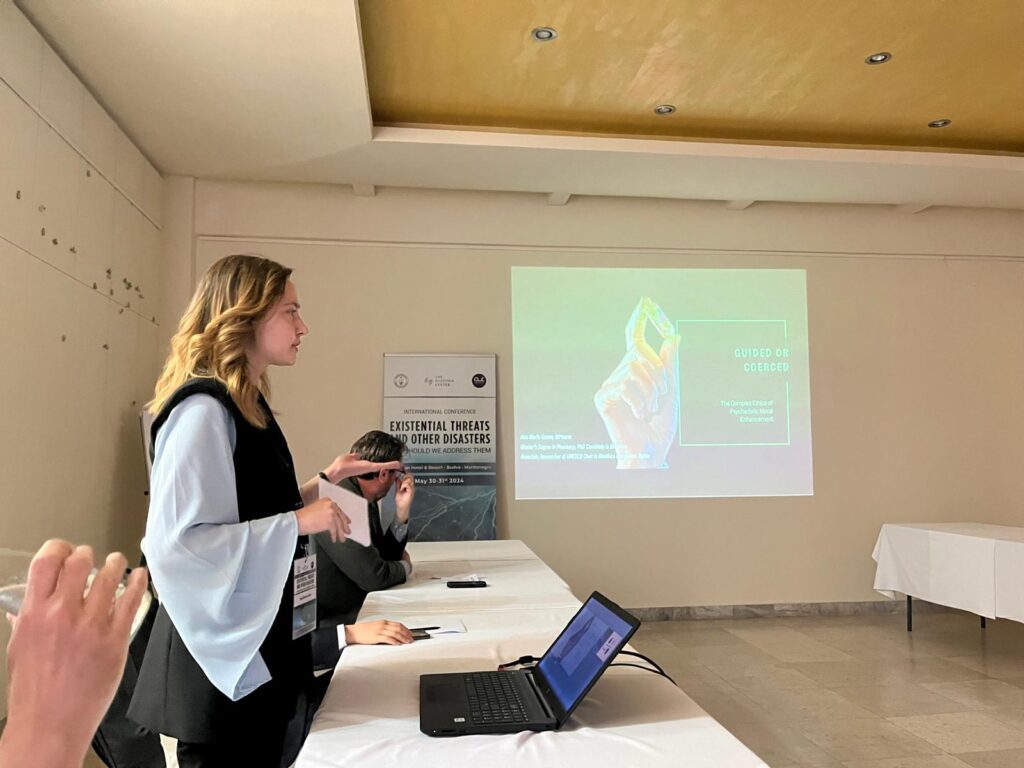Prof. Fr. Baggot and Ana Maria Ganev at the Conference “Existential Threats and Other Disasters: How Should We Address Them” – Montenegro
30-31 May 2024 the Conference “Existential Threats and Other Disasters: How Should We Address Them” was held in Montenegro. The Conference was organized by The Center for the Study of Bioethics, The Hastings Center and The Oxford Uehiro Centre for Practical Ethics.
Prof. Fr. Michael Baggot, LC, Assistant Professor of the Faculty of Bioethics, gave a speech about ‘Learning to Love Humans in the AI Apocalypse’ & Ana Maria Ganev, UNESCO Chair Assistant Researcher, about ‘Guided or Coerced: The Complex Ethics of Psychedelic Moral Enhancement’
Learning to Love Humans in the AI Apocalypse

Michael Baggot
Abstract
What if the apocalypse looks more like the film Her than the recent Oppenheimer? Perhaps humans will avoid incinerating each other only to dupe themselves into illusory emotional, romantic, and sexual attachments to their own AI inventions. These bonds would disconnect large sectors of society from reality and rid life of the noblest human interactions. New generative AI systems could so convincingly mimic human behavior that many people will settle for ersatz responses to their deepest relational needs.
No sudden explosion would alert humanity to such existential risks. Instead, ever-more sophisticated algorithms would slowly permeate life until intimacy with AI systems becomes as commonplace as joining a social media platform. Yet the steady creep toward submission to simulations is not inevitable. There is still time to dance, sing, feast, and procreate with other human beings. There is still time to meditate, converse, and love. This paper argues that learning to love humans well in the future requires a twofold approach. First, we should relish the fleshly embodiment outside our virtual domains. Shared meals, dance, sports, and religious rituals can remind us of the joys of being animals. Second, we should rediscover the uniquely personal capacities for abstract understanding, self-reflection, judgment, and moral agency that characterize humans as odd but endearing members of the animal kingdom. Personal introspection and philosophical dialogue can reawaken us to the rich subjectivity distinguishing us from our digital devices.
Guided or Coerced: The Complex Ethics of Psychedelic Moral Enhancement

Ana Maria Ganev
Abstract
Due to new technologies and the increasing destructive power of single individuals, traditional moral progress seems not up to the task anymore to prevent a societal collapse or even human extinction. Therefore, there is a recognized need for some support from non-traditional means in order to face modern challenges. A growing body of evidence suggests that a viable and practical way of achieving moral neuroenhancement is the use of psychedelic substances.
The debate around moral enhancement raises important questions about human agency, freedom, and societal risks. While some argue that moral bioenhancement would deprive people of free will or create a faux morality, others contend that compulsory, covert administration could avert catastrophes. Though disagreeing on methods, both sides recognize humanity’s moral limitations. Within this context, psychedelics come to the fore, presenting their own set of moral implications. The profound emotional and cognitive transformations induced by psychedelic experiences, when approached with careful consideration of “set” (mindset), “setting” (environment), and integration, open up new avenues for moral enhancement. Hence advocates propose psychedelics as voluntary moral aids, when other efforts fail. By altering consciousness, psychedelics unsettle notions of agency, virtue, and freedom. This paper delves into the exploration of psychedelics’ moral implications, considering whether they might serve as viable supplements for achieving moral progress. It underscores the importance of approaching them as aids rather than compulsions, thereby preserving the dignity of individual choice and autonomy while offering potential pathways toward a harmonious integration of traditional moral education and psychotherapy.
